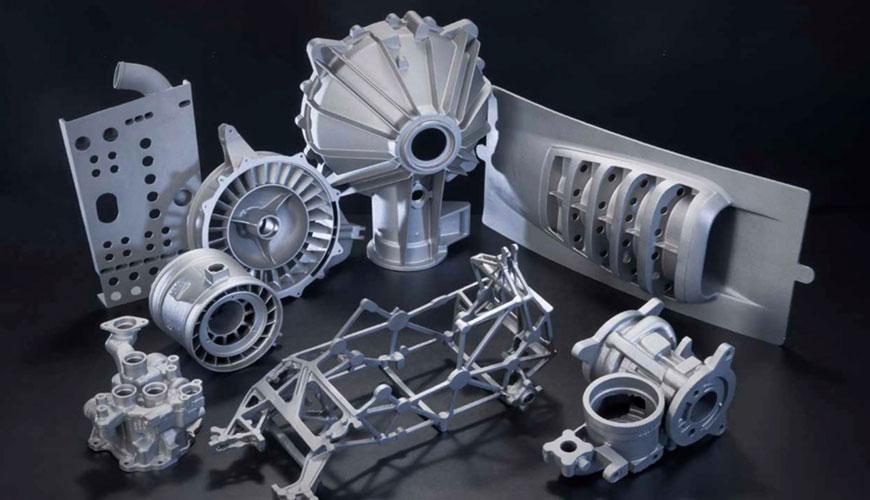

EUROLAB, with its state-of-the-art accredited laboratories and expert team, offers precise and rapid testing services within the scope of EN 12373-5 testing. This Part of this European Standard specifies a method for assessing the quality of sealed anodic oxidation coatings on aluminum and its alloys by measuring the penetration.

The method is applicable to anodic oxidation coatings sealed in an aqueous environment. The method is suitable for use as production control testing and acceptance testing in cases where there is an agreement between the supplier and the buyer.
The purpose of the testing described in this standard is to provide a rapid, non-destructive assessment of the quality of sealed anodic oxidation coatings and is well suited for routine production control. It is carried out after sealing and before other complementary operations such as lubrication and polishing.
The correlation of results obtained with other sealing tests may be affected by the presence of sealing additives or contaminants such as silicate or phosphate. The sealing quality must therefore be checked from time to time using one of the reference acid-dissolution methods specified in EN 12373-6 or EN 12373-7.
The anodic oxidation coating on aluminum is represented as an electrical diagram consisting of a set of ohmic and capacitive resistors installed in series or parallel in an alternating current circuit. The numerical value of these resistors depends on the following variables:
EUROLAB assists manufacturers with EN 12373-5 test compliance. Our test experts, with their professional working mission and principles, provide you, our manufacturers and suppliers, the best service and controlled testing process in our laboratories. Thanks to these services, businesses receive more effective, high-performance and quality testing services and provide safe, fast and uninterrupted service to their customers.
To get an appointment, to get more detailed information or to request an evaluation, you can ask us to fill in our form and reach you.